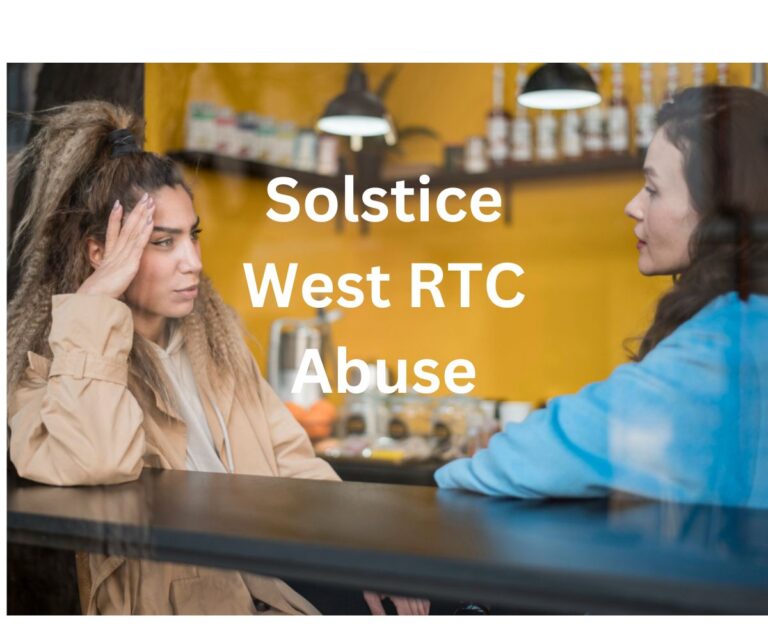Solstice West Residential Treatment Center (RTC) is a facility known for providing therapeutic services to adolescents struggling with mental health issues. However, allegations of abuse and misconduct have surfaced, casting a shadow over its reputation. This article delves into the allegations, explores the potential impact on victims, and discusses the broader implications for residential treatment centers.
Understanding Solstice West RTC
Background and Mission
Solstice West RTC, located in Layton, Utah, aims to help troubled teens by offering a comprehensive therapeutic environment. The center promises to address various issues, including behavioral problems, trauma, and mental health disorders, through a combination of therapeutic modalities, education, and recreational activities.
Programs Offered
The facility offers a range of programs designed to support the holistic development of adolescents. These include individual and group therapy, experiential therapy, family therapy, and educational services. The goal is to equip teens with the skills and resilience needed to navigate life’s challenges.
Allegations of Abuse
Nature of the Allegations
Recent reports have brought to light serious allegations of abuse within Solstice West RTC. These allegations range from physical and emotional abuse to neglect and improper restraints. Former residents and their families have come forward with stories of mistreatment, raising concerns about the safety and efficacy of the facility’s programs.
Voices of the Victims
Many former residents have shared harrowing experiences of their time at Solstice West. They describe an environment where fear and intimidation were commonplace, and where staff members allegedly used harsh disciplinary measures. These accounts paint a grim picture of life inside the center, contradicting its mission of providing a safe and nurturing space for healing.
Legal Actions and Investigations
In response to these allegations, several legal actions have been initiated against Solstice West RTC. Investigations by regulatory bodies and law enforcement agencies are underway to determine the validity of the claims and hold accountable those responsible for any wrongdoing. The outcome of these investigations could have significant ramifications for the facility and its future operations.
The Impact of Abuse on Adolescents
Psychological and Emotional Consequences
Abuse in residential treatment centers can have profound and lasting effects on adolescents. Victims may experience a range of psychological and emotional issues, including anxiety, depression, post-traumatic stress disorder (PTSD), and trust issues. These consequences can hinder their ability to form healthy relationships and succeed in various aspects of life.
Barriers to Recovery
The very environment that is supposed to foster healing can become a source of trauma for victims of abuse. This betrayal of trust can make it difficult for them to seek help in the future, potentially exacerbating their mental health challenges. It underscores the importance of ensuring that residential treatment centers are truly safe and supportive environments.
Broader Implications for Residential Treatment Centers
Regulatory Oversight and Accountability
The allegations against Solstice West RTC highlight the need for stringent regulatory oversight of residential treatment centers. It is crucial to have robust mechanisms in place to monitor the quality of care provided and to address any complaints promptly. This can help prevent abuse and ensure that facilities adhere to the highest standards of care.
Best Practices for Treatment Centers
To restore trust and improve outcomes, residential treatment centers must adopt best practices that prioritize the well-being of their residents. This includes implementing trauma-informed care, ensuring proper staff training, and fostering a culture of transparency and accountability. By doing so, they can create an environment conducive to genuine healing and growth.
Seeking Justice and Support
Legal Recourse for Victims
Victims of abuse at Solstice West RTC and similar facilities have the right to seek justice through legal channels. This may involve filing lawsuits against the facility, pursuing criminal charges against perpetrators, and advocating for policy changes to protect future residents. Legal action can be a crucial step in holding abusers accountable and preventing further harm.
Support Resources for Survivors
Survivors of abuse need access to comprehensive support services to aid in their recovery. This includes mental health counseling, support groups, and advocacy organizations that can provide guidance and assistance. Empowering survivors to share their stories and seek help is essential for their healing journey.
Conclusion
The allegations of abuse at Solstice West RTC serve as a stark reminder of the vulnerabilities faced by adolescents in residential treatment centers. It is imperative to address these issues through thorough investigations, legal action, and the implementation of best practices. By doing so, we can create safer and more effective therapeutic environments that truly support the healing and growth of troubled teens.
ALSO READ:Exploring the Benefits of Joining Korps Sukarela: A Guide for Volunteers
FAQs
What are the main allegations against Solstice West RTC?
The main allegations against Solstice West RTC include physical and emotional abuse, neglect, and improper restraints used on residents. Former residents and their families have reported mistreatment that contradicts the facility’s mission of providing a safe therapeutic environment.
How can abuse in residential treatment centers impact adolescents?
Abuse in residential treatment centers can have severe psychological and emotional consequences for adolescents, including anxiety, depression, PTSD, and trust issues. These effects can hinder their ability to form healthy relationships and succeed in various life aspects.
What steps are being taken to address the allegations against Solstice West RTC?
Several legal actions have been initiated, and investigations by regulatory bodies and law enforcement agencies are underway to determine the validity of the claims. These efforts aim to hold those responsible accountable and ensure the safety of current and future residents.
How can residential treatment centers prevent abuse and ensure quality care?
Residential treatment centers can prevent abuse by implementing trauma-informed care, ensuring proper staff training, fostering transparency, and adhering to stringent regulatory standards. These practices can create a supportive environment that prioritizes residents’ well-being.
What support resources are available for survivors of abuse in treatment centers?
Survivors of abuse can access mental health counseling, support groups, and advocacy organizations that provide guidance and assistance. These resources are crucial for their recovery and empowerment to seek justice and healing.

